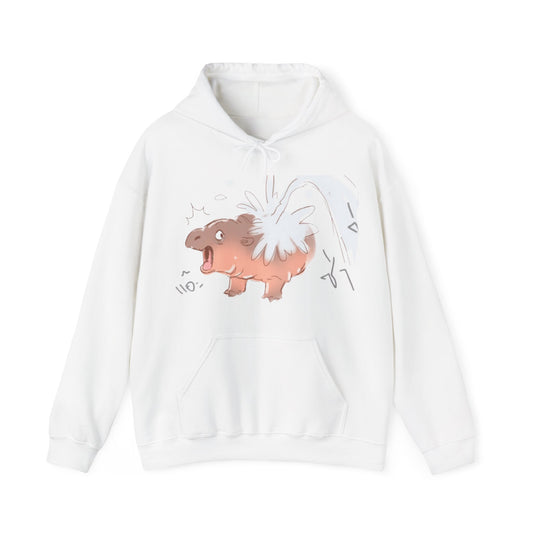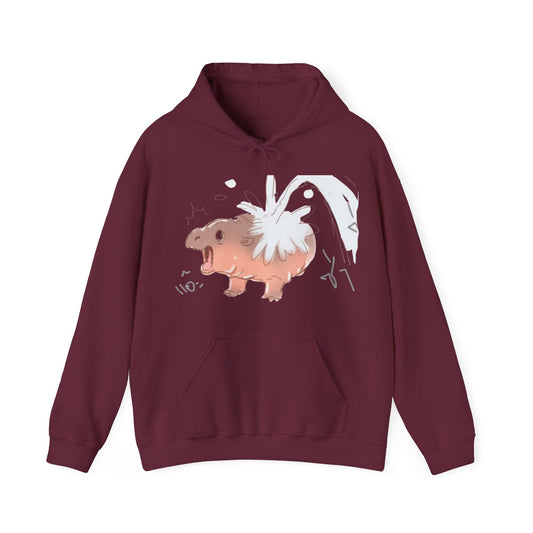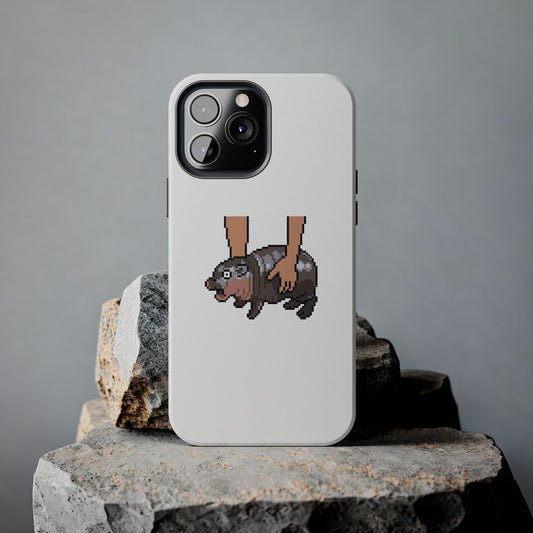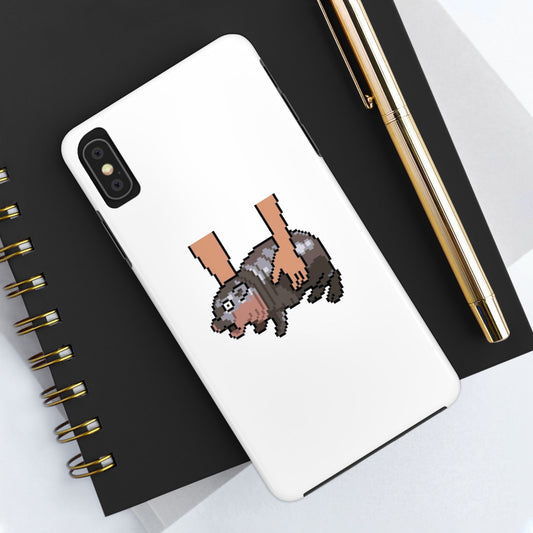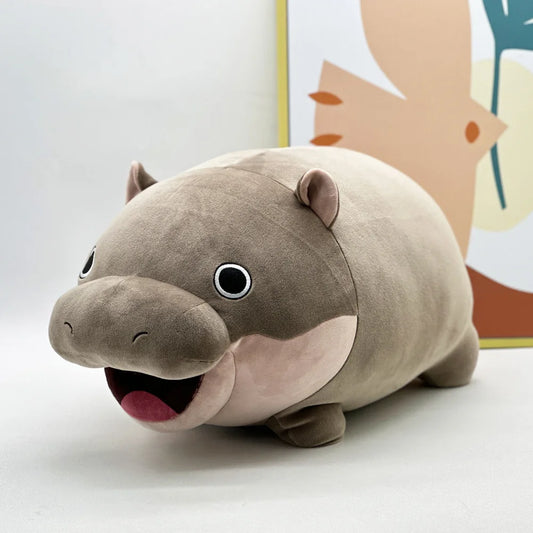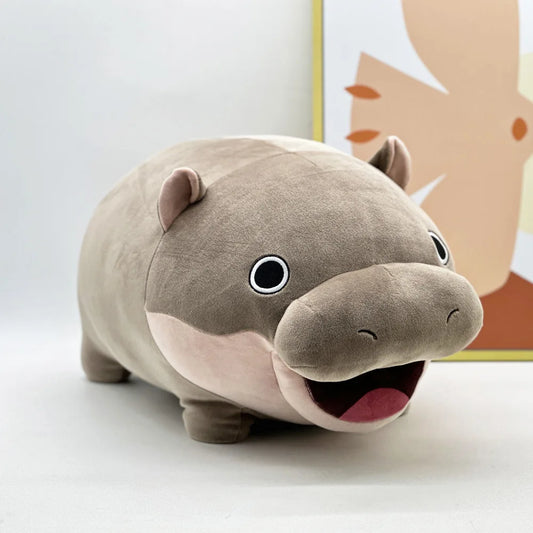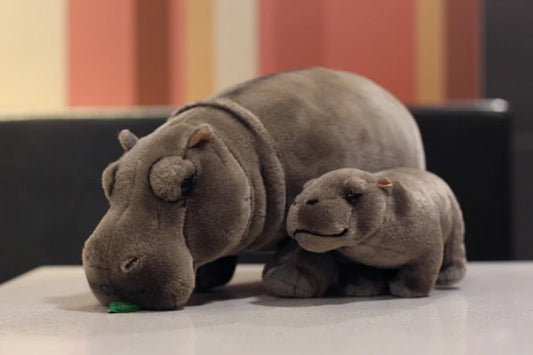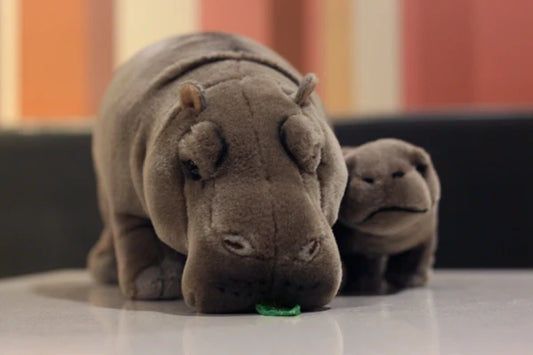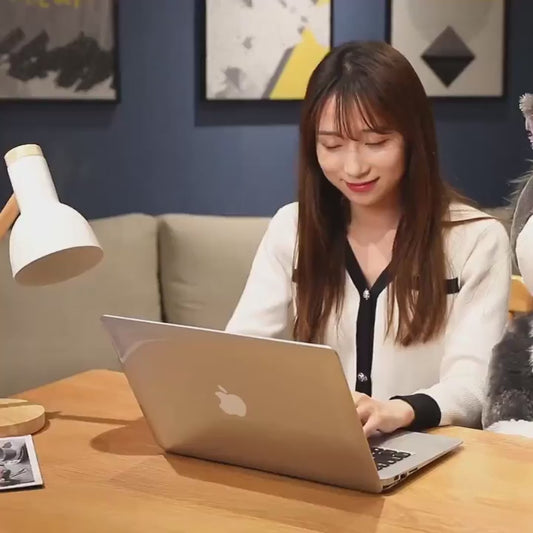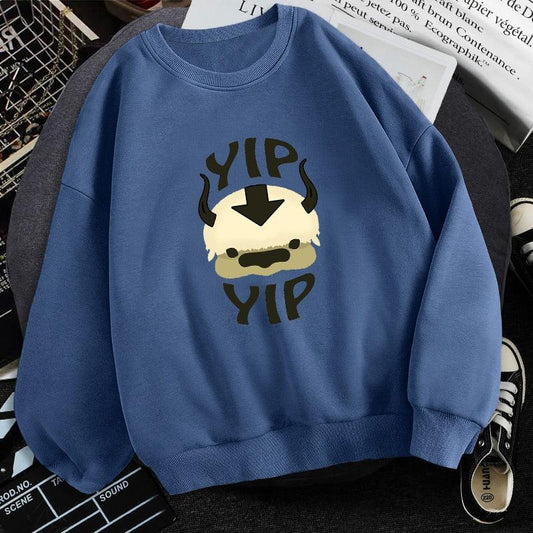The Unlikely Rise of Moo Deng: How a Baby Pygmy Hippo Captured Global Hearts
In an era where social media stars are born overnight, one unlikely contender has waddled her way into the spotlight. Meet Moo Deng, the baby pygmy hippo whose adorable antics and charming personality have catapulted her to international stardom. Born on July 10, 2024, at Khao Kheow Open Zoo in Chonburi, Thailand, Moo Deng has become a global sensation, captivating audiences and raising awareness about endangered species conservation.
This remarkable story of a tiny hippo's rise to fame highlights the fascinating intersection of conservation efforts, social media influence, and animal welfare concerns. As we delve into Moo Deng's journey, we'll explore how her popularity is reshaping conversations about wildlife protection and the role of zoos in the modern world.
Background and Context: The Birth of a Star
A New Addition to the Zoo Family
Moo Deng's arrival at Khao Kheow Open Zoo was a cause for celebration among conservationists and animal lovers alike. Born to parents Jona and Tony, Moo Deng joined siblings Moo Tun and Moo Wan in a growing family of pygmy hippos. Her birth was not just a joyous occasion for the zoo but a significant event for the species as a whole.
What's in a Name?
The name "Moo Deng," which translates to "bouncy pig" in Thai, was chosen through a public poll that engaged over 20,000 participants. This naming process was an early indication of the public interest that would soon explode around the young hippo.
Pygmy Hippos: A Species on the Brink
To understand the significance of Moo Deng's birth, it's crucial to consider the current status of pygmy hippos in the wild. These rare animals are listed as endangered, with only about 2,000 individuals remaining in their natural habitats, primarily in West Africa. The precarious situation of wild pygmy hippos underscores the importance of conservation efforts and breeding programs in zoos.
Zoo Breeding Programs: A Lifeline for Endangered Species
Zoos like Khao Kheow Open Zoo play a vital role in the conservation of endangered species. Breeding programs in controlled environments provide a safety net for species whose wild populations are under threat. These programs not only maintain genetic diversity but also offer opportunities for research and public education about conservation issues.
Moo Deng's Rise to Fame: A Social Media Phenomenon
The Power of Viral Videos
Moo Deng's journey to stardom began when her caretakers started posting videos of her daily activities on social media platforms during the pandemic. What started as a way to engage with zoo visitors remotely quickly turned into a global sensation. The TikTok account dedicated to the animals of Khao Kheow Open Zoo, featuring Moo Deng prominently, has amassed over 2.5 million followers.
One particularly charming video of Moo Deng yawning garnered over 5.8 million views on Facebook alone, cementing her status as a viral sensation. These staggering numbers reflect the immense appeal of Moo Deng's innocent and playful demeanor to audiences worldwide.
Impact on Zoo Attendance and Local Economy
Moo Deng's popularity has translated into tangible benefits for Khao Kheow Open Zoo and the local tourism industry. The zoo has reported a remarkable 30% to 100% increase in visitors since Moo Deng's birth. This surge in attendance has not only boosted the zoo's revenue but has also had a positive ripple effect on the local economy.
Recognition Beyond Social Media
Moo Deng's influence has extended far beyond the realm of social media. In a testament to her cultural impact, Time magazine named her an "Icon" and "Legend," solidifying her status as a global phenomenon. This recognition from a prestigious publication underscores the broad appeal and significance of Moo Deng's story.
Life of a Baby Pygmy Hippo: Behind the Scenes with Moo Deng
Daily Routine and Behavior
While Moo Deng's online presence may be filled with excitement, her daily life follows a more relaxed rhythm. Atthapon Nundee, a zookeeper at Khao Kheow Open Zoo, provides insight into Moo Deng's routine: "Most of the time she is sleeping... She only has milk from mom, she doesn't eat anything else besides milk."
This glimpse into Moo Deng's life highlights the contrast between her online persona and the reality of a young, growing animal. Her sleeping patterns and feeding habits are crucial for her development, emphasizing the importance of allowing her to follow her natural rhythms despite her newfound fame.
Family Dynamics
Moo Deng's family plays a vital role in her life. Her parents, Jona and Tony, provide the care and nourishment essential for her growth. Siblings Moo Tun and Moo Wan offer companionship and opportunities for play, which are crucial for Moo Deng's social development.
Milestones and Growth
As Moo Deng continues to grow, she reaches various developmental milestones. These stages of growth are closely monitored by zoo staff to ensure her health and well-being. While specific details of Moo Deng's growth are not publicly available, pygmy hippos typically experience rapid development in their first year of life.
Conservation Implications: Raising Awareness Through Cuteness
Spotlight on Pygmy Hippos
Moo Deng's popularity has brought unprecedented attention to pygmy hippos and their conservation needs. By captivating global audiences, she has become an ambassador for her species, raising awareness about the endangered status of pygmy hippos and the threats they face in the wild.
The Zoo Breeding vs. Wild Conservation Debate
Moo Deng's story has reignited discussions about the role of zoos in conservation efforts. While zoo breeding programs provide a safeguard for endangered species, some experts argue that resources should be primarily directed towards protecting wild habitats.
Edwin Wiek from the Wildlife Friends Foundation Thailand offers a perspective on wild conservation: "They are very endangered, but actually, with the proper enforcement and conservation plan in the wild – leave them alone, they can do really well." This viewpoint highlights the importance of balancing captive breeding efforts with initiatives to protect and preserve natural habitats.
Potential Impact on Conservation Funding and Efforts
The global attention garnered by Moo Deng has the potential to translate into increased support for conservation efforts. As people become more aware of and emotionally invested in pygmy hippos, there may be a surge in donations to conservation organizations and greater public backing for protective measures.
Managing Moo Deng's Popularity: Balancing Public Interest and Animal Welfare
Crowd Control Measures
The influx of visitors eager to see Moo Deng has necessitated the implementation of strict crowd management strategies. The zoo now limits groups to 50 people and allows only five minutes for observation. These measures aim to balance public interest with Moo Deng's need for rest and a stress-free environment.
Ensuring Animal Welfare
Narongwit Chodchoi, the Zoo Director, has been vocal about the need to protect Moo Deng from overzealous visitors. "These behaviors are not only cruel but also dangerous... We must protect these animals and ensure that they have a safe and comfortable environment," he stated, addressing incidents of visitor misconduct.
To safeguard Moo Deng's well-being, the zoo has installed CCTV cameras around her enclosure and has threatened legal action against visitors who violate the rules. These steps underscore the serious commitment to prioritizing animal welfare over public demand.
Cultural and Economic Impact: The Moo Deng Effect
Merchandise and Branding Opportunities
Moo Deng's popularity has spawned a range of merchandise and branding opportunities. From hippo-inspired clothing to cosmetics and even cakes, her image has become a marketable commodity. This merchandising boom has created new revenue streams for the zoo and local businesses.
Influence on Thai Tourism
The "Moo Deng effect" extends beyond the zoo's boundaries, positively impacting Thailand's tourism industry. Her fame has put a spotlight on Thai wildlife attractions, potentially drawing more international visitors interested in eco-tourism and conservation-focused experiences.
Global Interest in Thai Wildlife
Moo Deng's story has piqued global interest in Thai wildlife and conservation efforts. This increased attention could lead to greater international support for and collaboration on conservation projects in Thailand and Southeast Asia.
Challenges and Ethical Considerations: Navigating Fame in the Animal Kingdom
Visitor Behavior and Animal Welfare
The surge in popularity has brought challenges, particularly concerning visitor behavior. Incidents of people throwing water and shellfish to wake Moo Deng have raised serious concerns about animal welfare. These occurrences highlight the need for strict guidelines and education to ensure that public interest does not compromise animal well-being.
Commercialization vs. Conservation
As Moo Deng's fame grows, there's a delicate balance to strike between leveraging her popularity for conservation awareness and avoiding excessive commercialization. The zoo and conservation organizations must navigate this carefully to ensure that the message of conservation remains at the forefront.
Long-term Implications of Fame
The long-term effects of Moo Deng's celebrity status on her development and behavior are yet to be fully understood. Ongoing monitoring and research will be crucial to assess any potential impacts and adjust management strategies accordingly.
Future Outlook: The Legacy of Moo Deng
Projected Impact on Pygmy Hippo Conservation
Moo Deng's story has the potential to leave a lasting impact on pygmy hippo conservation efforts. The increased awareness and emotional connection forged with global audiences could translate into sustained support for conservation initiatives, both in zoos and in the wild.
Potential for Ongoing Public Engagement
As Moo Deng grows, there's an opportunity to maintain public interest through educational content about pygmy hippos and their conservation needs. This ongoing engagement could foster a long-term commitment to wildlife protection among her followers.
Lessons for Wildlife Tourism and Zoo Management
The Moo Deng phenomenon offers valuable lessons for wildlife tourism and zoo management in the digital age. Balancing public interest with animal welfare, leveraging social media for conservation awareness, and managing sudden fame are all areas where Moo Deng's case provides insights for future scenarios.
How To: Responsibly Engage with Zoo Animals
FAQ Section
How do pygmy hippos differ from regular hippos?
Pygmy hippos are significantly smaller than their common hippopotamus cousins, weighing about 350-600 pounds compared to the 3,000-9,000 pounds of common hippos. They are more solitary, prefer forested areas near water rather than spending most of their time submerged, and have different social structures.
What role do zoos play in pygmy hippo conservation?
Zoos play a crucial role through breeding programs that maintain genetic diversity, research that enhances our understanding of the species, and public education efforts that raise awareness about conservation needs.
How can social media fame impact animal welfare?
Social media fame can have both positive and negative impacts. On the positive side, it can raise awareness and support for conservation efforts. However, it can also lead to increased stress on animals due to larger crowds and potentially disruptive visitor behavior.
Are there plans to reintroduce zoo-born pygmy hippos to the wild?
While there are currently no widespread reintroduction programs for zoo-born pygmy hippos, some conservation organizations are exploring the possibility. The focus remains on protecting existing wild populations and their habitats.
What can individuals do to support pygmy hippo conservation?
Individuals can support conservation by donating to reputable organizations, spreading awareness about the species' endangered status, supporting sustainable practices that protect habitats, and choosing to visit zoos and wildlife centers that prioritize conservation and animal welfare.
Conclusion: The Ripple Effect of a Tiny Hippo
Moo Deng's journey from a newborn pygmy hippo to a global sensation encapsulates the power of social media to shine a spotlight on important conservation issues. Her story has not only brought joy to millions but has also raised critical awareness about the plight of endangered species.
As we continue to follow Moo Deng's adventures, it's crucial to remember the delicate balance between public interest and animal welfare. Her fame offers a unique opportunity to educate and inspire action for wildlife conservation on a global scale.
The tale of Moo Deng serves as a reminder of the profound connection humans can form with animals and the responsibility that comes with it. As her legacy unfolds, may it inspire a new generation of conservationists and foster a deeper appreciation for the wonders of the natural world.
Let Moo Deng's story be a call to action – to engage responsibly with wildlife, support conservation efforts, and work towards a future where species like the pygmy hippo can thrive both in captivity and in their natural habitats.
Additional Resources
For those inspired by Moo Deng's story and eager to learn more or contribute to pygmy hippo conservation, here are some valuable resources:
- Khao Kheow Open Zoo Official Website
- IUCN Red List - Pygmy Hippopotamus
- Pygmy Hippo Foundation
- World Wildlife Fund - Pygmy Hippo Conservation
By engaging with these resources and supporting conservation efforts, we can all play a part in ensuring a future for pygmy hippos and other endangered species, inspired by the charming Moo Deng and her incredible journey to stardom.


